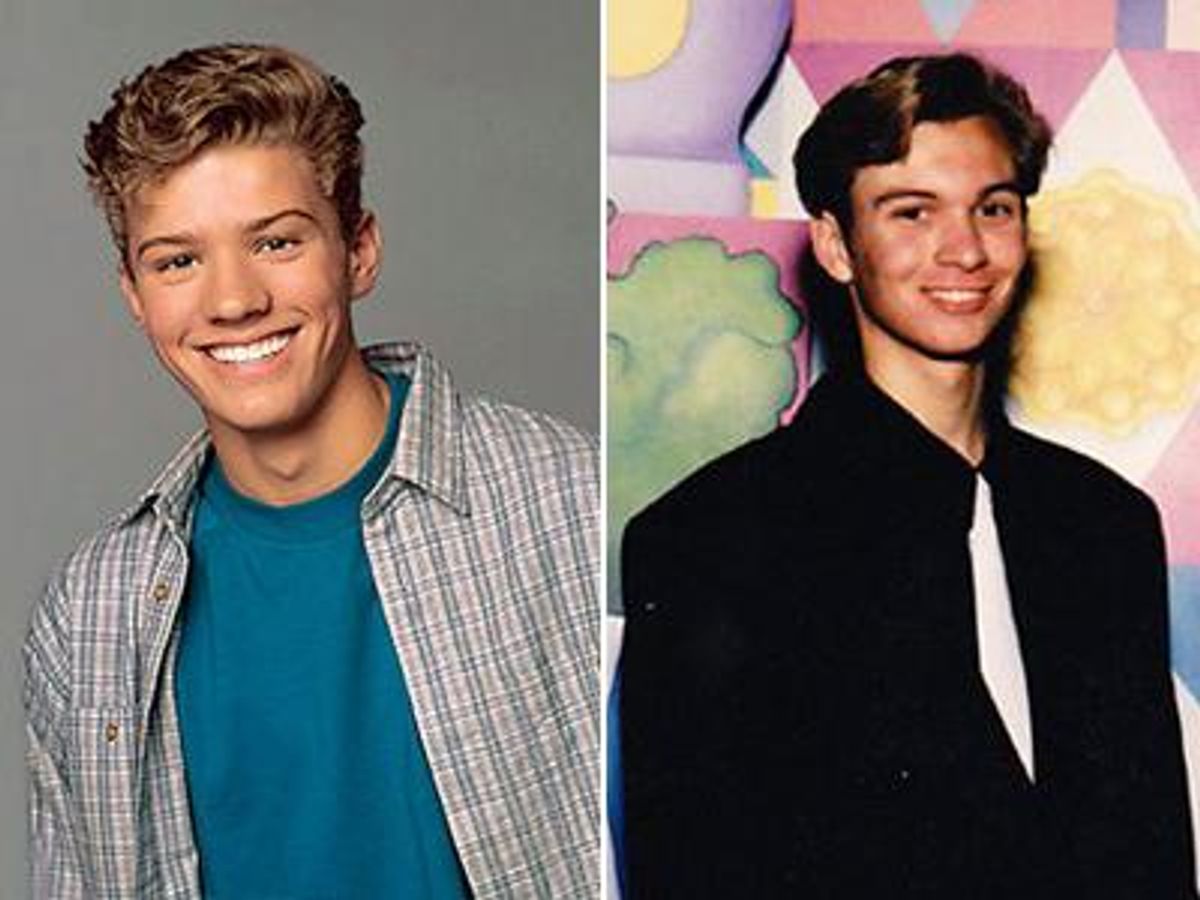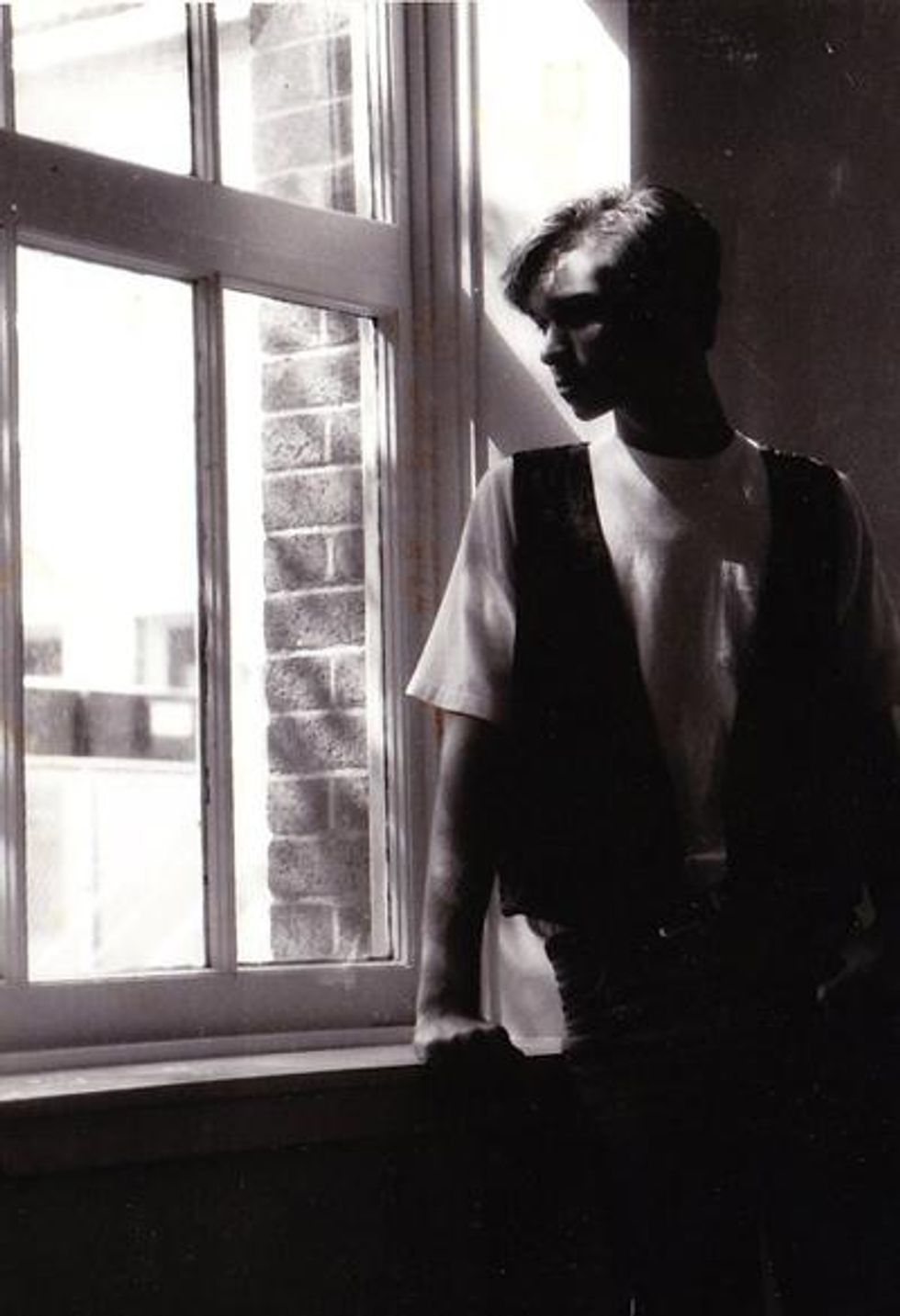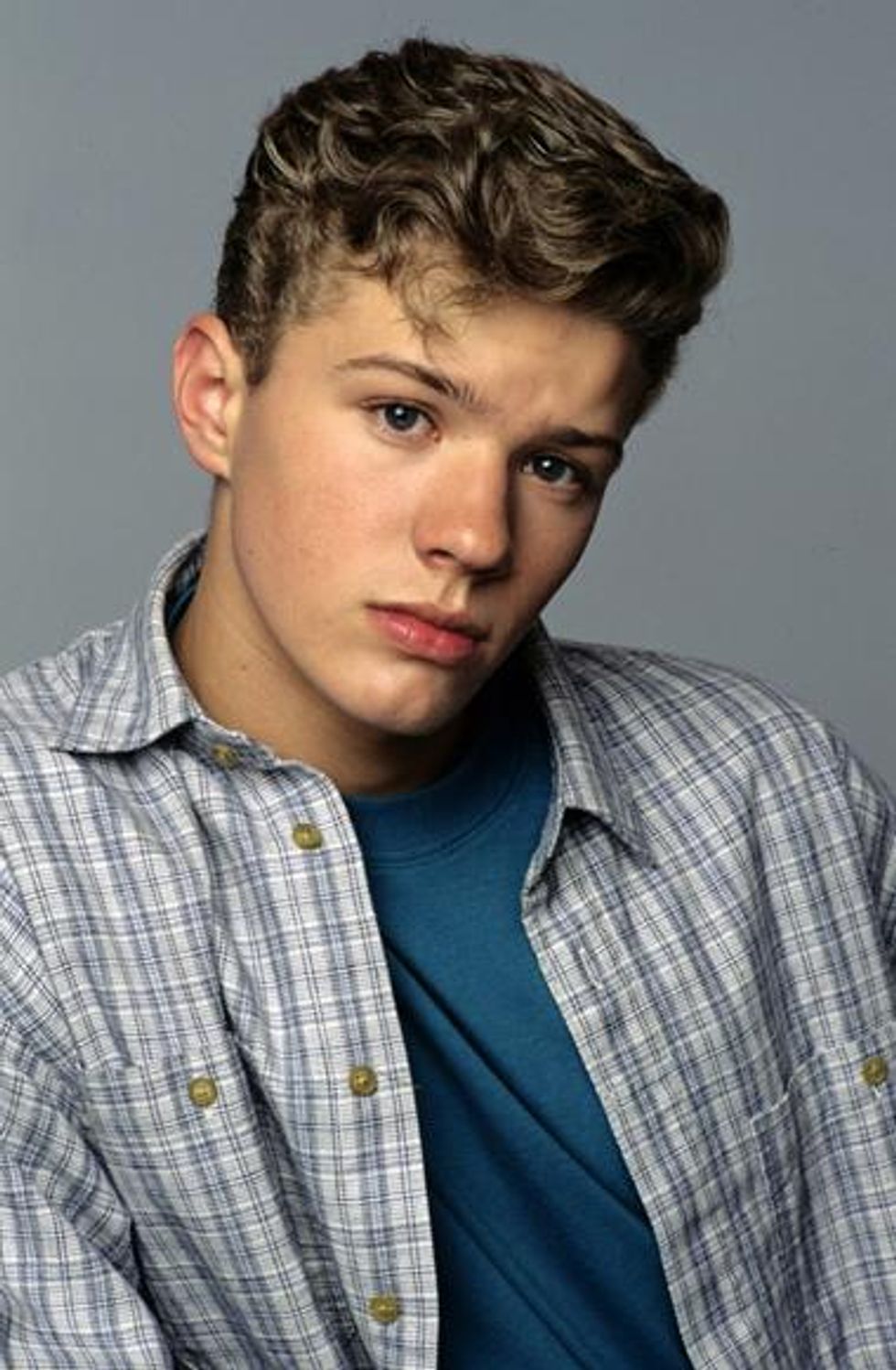It was April 1992 when my friend Jill sat down for lunch next to me in the quad of Turlock High School.
"Have you heard? There's a story on One Life to Live about a cute gay teenager and it's so good," she said. "You really need to see it."
Jill was one of the first people I had entrusted with a secret I was terrified to share with my strict, Pentecostal Christian parents -- I liked boys. Though I had accepted my sexuality a few years earlier, leading one life at home and another at school had started to wear on my 16-year-old heart. I began to believe I would never meet another gay person my age. However, the news that one was appearing on a popular soap opera stirred up a lingering curiosity I couldn't ignore. I had to see this for myself.
The next morning I awoke before the rest of my family and carefully crept down the hallway of our home on a covert mission to program our outdated, top-loading VCR for a TV show that featured what I had begun to assume was a mythological being -- another gay teen. Over the course of my junior year, as more of my classmates learned of my sexuality, the campus of my high school became an increasingly hostile environment. From the letterman jacket-clad jocks who would yell "faggot" and shove me into lockers as I passed down the halls to the giggling girls who would fling bits of food into my hair from across the cafeteria, encountering homophobia had become a daily occurrence. However, the knowledge of what I would be watching later that afternoon filled me with a renewed sense of self. I left for school that morning smiling for the first time in months.
 By the time the school day ended and the bus arrived at my stop, my usual fast-paced walk had become a full-blown sprint until I burst through the front door of our home and slammed my finger down on the play button of our VCR. For the next hour I sat mesmerized as the story of Billy Douglas, the first gay teen I had ever laid eyes on, began to unfold in my living room. Played by a 17-year-old Ryan Phillippe, Billy was nothing like the "perverted homosexuals" who were the subject of church sermons and countless warnings I'd heard from my family. Instead, he was a handsome, kind, and sincere young man whose hopes and fears were unbelievably similar to my own.
By the time the school day ended and the bus arrived at my stop, my usual fast-paced walk had become a full-blown sprint until I burst through the front door of our home and slammed my finger down on the play button of our VCR. For the next hour I sat mesmerized as the story of Billy Douglas, the first gay teen I had ever laid eyes on, began to unfold in my living room. Played by a 17-year-old Ryan Phillippe, Billy was nothing like the "perverted homosexuals" who were the subject of church sermons and countless warnings I'd heard from my family. Instead, he was a handsome, kind, and sincere young man whose hopes and fears were unbelievably similar to my own.
Over the weeks that followed, I faithfully tuned in each day for another chapter of Billy's story. I smiled when his friends berated those who used homophobic slurs in his presence, and tears ran down my face when he revealed his sexuality to his counselor, a priest named Andrew Carpenter, who simply hugged him and told him "you're not alone"-- words I'd never before heard from an adult, real or fictional, in my own life. It didn't matter that these people were only characters on a TV show, they provided a sense of validation and feeling of acceptance the likes of which I never imagined possible. For the first time I knew with certainty other young people like myself actually existed in the world, and during the hour One Life to Live flickered across our television screen each afternoon, I felt a small amount of relief from the hatred that surrounded me in our small town.
As the final summer vacation of my high school career kicked off, I was thankful I no longer had to videotape my daily date with Billy Douglas. Instead of creating evidence that could potentially incriminate me, I was secure I could now watch episodes without fear of being discovered as my parents toiled away at their day jobs -- or so I thought.
For weeks the show had been building to the moment Billy would come out to his homophobic parents. Just as the boy I'd come to idolize began to reveal to his father a secret I never thought I could, my mother unexpectedly walked through the front door. A bolt of terror tore through my chest as she explained she had taken a half-day off work after a short dentist appointment, and my pulse raced as she sat down on the couch next to me. I wanted to leap across the room and change the channel, distract her with idle talk, or run from the room as quickly as my feet would carry me, but the fear that was coursing through me had immobilized my body.
"I can't go on hiding who I am anymore," Billy said as the scene I'd been waiting to see unfolded on the television screen. "I'm gay, and I need you to understand that, Dad."
 A heavy, uncomfortable tension filled the room as Billy's father began to berate him, telling his son how disgusted he was by homosexuality and how no son of his could possibly be gay. The cruelty of Billy's father in that moment was so inhumane I believed my mother might feel some empathy for the young charter's plight -- and by extension, her own son's as well. It was only after she cleared her throat and spoke that I realized I had been holding my breath.
A heavy, uncomfortable tension filled the room as Billy's father began to berate him, telling his son how disgusted he was by homosexuality and how no son of his could possibly be gay. The cruelty of Billy's father in that moment was so inhumane I believed my mother might feel some empathy for the young charter's plight -- and by extension, her own son's as well. It was only after she cleared her throat and spoke that I realized I had been holding my breath.
"I'd kick my son's butt if he ever told me that," she said, as my heart sank. "How people can do that with their bodies is beyond me."
Anger boiled up within me, and before I knew it the words flew past my lips. "Why would that be such a bad thing?"
"Son, homosexuality is a stench in the nostrils of God," my mother shot back. "I could never accept that lifestyle, ever. Don't let shows like this twist your mind. It's not natural. I don't care what anyone says."
I sat in silence as the words my mother spoke bounced around in the back of my brain. At that moment I realized the impact seeing another gay teen on television had had on me. Though my mother's reaction hurt, it did not defeat me. My fear had dwindled with the knowledge that, while my family might reject me, there were others in the world, like Billy -- like myself -- who would understand and accept me. All I needed to do was seek them out.
The inner strength I had gained from seeing a part of myself reflected on television propelled me forward in the following months. After I graduated from high school, it gave me the courage to audition for a traveling performing arts group known as the Blue Devils, where I met and became friends with other young gay men for the first time in my life. It also filled me with a sense of self-worth that endured even as my father told me I "turned his stomach" and kicked me out of the house when I came out to him at the age of 19. It didn't matter. I knew the truth now, and I had begun to build a gay family of my own who have encouraged, inspired, and loved me for nearly 20 years.
Today, a vast spectrum of LGBT people are represented in entertainment, and though many are criticized by our community for one reason or another, I can't help smiling each time one appears on the small screen. I know the potential impact each one of those characters can have on a young person living in an environment where they hear comments every day reinforcing the message that people like them are less than human. It's stories like the one of Billy Douglas that help LGBT youth realize not only that they're not alone, they are worthy of being celebrated, and out characters in media don't simply further visibility, they make a visible difference.
JASE PEEPLES is The Advocate's entertainment editor and a contributor for Out, Gay.net, and HIV Plus. He lives in Los Angeles. Follow him on Twitter @JasePeeples


 By the time the school day ended and the bus arrived at my stop, my usual fast-paced walk had become a full-blown sprint until I burst through the front door of our home and slammed my finger down on the play button of our VCR. For the next hour I sat mesmerized as the story of Billy Douglas, the first gay teen I had ever laid eyes on, began to unfold in my living room. Played by a 17-year-old Ryan Phillippe, Billy was nothing like the "perverted homosexuals" who were the subject of church sermons and countless warnings I'd heard from my family. Instead, he was a handsome, kind, and sincere young man whose hopes and fears were unbelievably similar to my own.
By the time the school day ended and the bus arrived at my stop, my usual fast-paced walk had become a full-blown sprint until I burst through the front door of our home and slammed my finger down on the play button of our VCR. For the next hour I sat mesmerized as the story of Billy Douglas, the first gay teen I had ever laid eyes on, began to unfold in my living room. Played by a 17-year-old Ryan Phillippe, Billy was nothing like the "perverted homosexuals" who were the subject of church sermons and countless warnings I'd heard from my family. Instead, he was a handsome, kind, and sincere young man whose hopes and fears were unbelievably similar to my own. A heavy, uncomfortable tension filled the room as Billy's father began to berate him, telling his son how disgusted he was by homosexuality and how no son of his could possibly be gay. The cruelty of Billy's father in that moment was so inhumane I believed my mother might feel some empathy for the young charter's plight -- and by extension, her own son's as well. It was only after she cleared her throat and spoke that I realized I had been holding my breath.
A heavy, uncomfortable tension filled the room as Billy's father began to berate him, telling his son how disgusted he was by homosexuality and how no son of his could possibly be gay. The cruelty of Billy's father in that moment was so inhumane I believed my mother might feel some empathy for the young charter's plight -- and by extension, her own son's as well. It was only after she cleared her throat and spoke that I realized I had been holding my breath.















































































Viral post saying Republicans 'have two daddies now' has MAGA hot and bothered